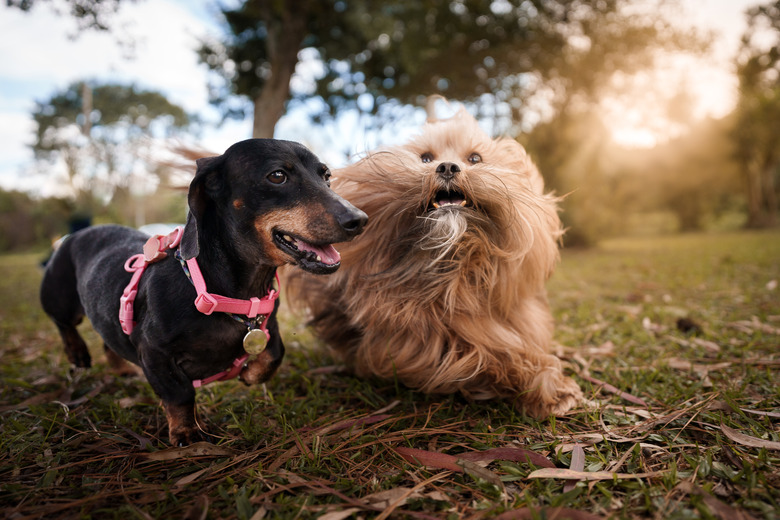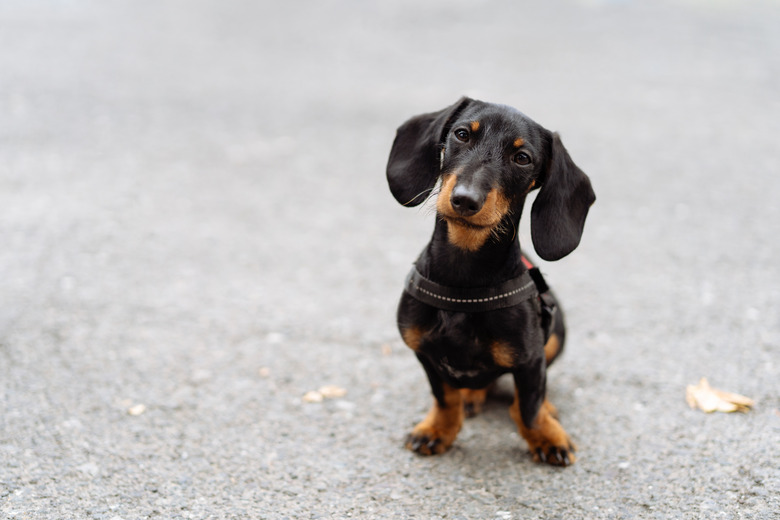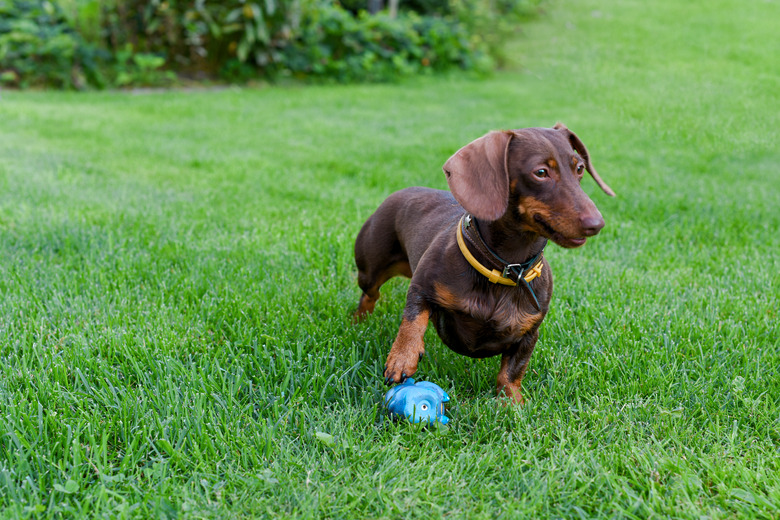Cures For Diarrhea In A Dachshund
While dachshunds are generally a healthy breed, they will (as will any dog) develop a case of diarrhea from time to time. Diarrhea in any breed is a symptom that something is wrong in the gastrointestinal tract, causing stomach issues. Dachshund stomach issues can be complicated because treatments depend on a long list of possible causes.
Diarrhea in dogs can be caused by several issues: a change in diet; intestinal parasites; ingestion of toxins; viral and bacterial infections; stress; foreign objects in the gastrointestinal tract; certain medications; and illnesses, such as pancreatitis, inflammatory bowel disease, or liver disease. Clearly, identifying what is causing the diarrhea is important in order to properly treat diarrhea in dachshunds.
Dangers of diarrhea in dogs
Dangers of diarrhea in dogs
You might be able to manage mild cases of diarrhea at home, but if your dog is vomiting, not eating, not drinking water, or appears lethargic, take them to the veterinarian right away. Other warning signs meriting medical attention include excessively watery and/or bloody stool and straining to defecate.
Any diarrhea, extreme or mild, that continues for more than 24 hours also means that your dog needs to go to the veterinarian. Diarrhea can result in rapid fluid loss and dehydration, particularly in small dogs, such as dachshunds. So, it's important to seek treatment immediately if the problem continues longer than a day or if the diarrhea is severe.
Feed dogs with diarrhea small, bland meals
Feed dogs with diarrhea small, bland meals
One or two episodes of dog diarrhea is considered mild. If this is what your dachshund experiences, you can try calming your dog's gastrointestinal tract by feeding them a bland diet and gauging the results. Replace their regular diet with small meals of bland food, such as skinless baked potatoes or plain, cooked white rice combined with boiled skinless turkey or chicken. Boiled lean ground beef is another option, but skim off the fat. Then, mix the beef with plain rice or white potatoes.
Avoid giving your dog any dairy products, spices, grease, and oils. Do not feed your dog anything other than a simple bland diet until their diarrhea clears up. Feed them small meals four times a day. If the diarrhea is improving, then gradually reintroduce your dog's regular diet during the next three to four days.
Slowly increase the size of the meals and decrease the frequency of feeding until your dog is back on their regular diet. Always have fresh water available for your dog and attempt to monitor their water intake to make sure they are drinking regularly.
Can dogs take Imodium for upset stomach?
Can dogs take Imodium for upset stomach?
Can you give Pepto Bismol to dogs? No, dogs should not take Pepto Bismol or Imodium for an upset stomach. In fact, you should never give your pet any over-the-counter human medications, especially without veterinary approval. Many human medications are not suitable for dogs.
Also, without knowing the cause of the dog's diarrhea, over-the-counter medications are not recommended, as they can worsen some conditions or have unwanted side effects. Small dogs, such as dachshunds, can be easily overdosed on over-the-counter medications. If your dog has diarrhea that is not improving with a bland diet, don't be tempted to try human medications. A veterinary visit is the best option.
Emergency dachshund stomach issues
Emergency dachshund stomach issues
Ultimately, if your dog has diarrhea for more than 24 hours or if the onset is sudden and accompanied by blood in the stool and vomiting, take your dog to the veterinarian immediately. Severe and prolonged diarrhea can cause dehydration in dogs, and they might need IV fluids in addition to other medications to bring symptoms under control and treat the underlying cause of the diarrhea.


